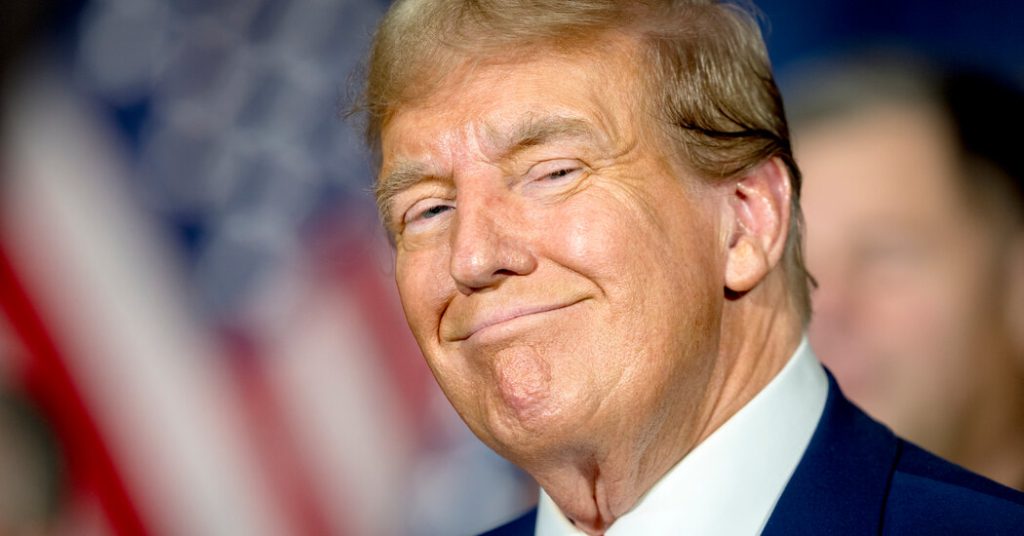Legal experts believe that the Supreme Court will be skeptical of former President Donald J. Trump’s claim of absolute immunity from prosecution for allegations of plotting to subvert the 2020 election. The case is expected to face challenges regarding timing, which could influence the outcome. The indictment lists several accusations against Mr. Trump, including manipulation of election results, pressuring officials to change outcomes, and directing supporters to the Capitol on January 6, 2021.
There is speculation that even if Mr. Trump ultimately loses the case, delays caused by the Supreme Court’s ruling could impact the timing of the trial. The court may not issue a definitive ruling, similar to a previous case involving Mr. Trump in 2020 regarding his tax records. In that case, Mr. Trump lost but was able to prolong the legal process, pushing the final ruling past the election date. A possible outcome in the current case could involve a ruling against Mr. Trump while lower courts address other legal complexities.
The Supreme Court’s decision on the 2020 immunity case was issued on the last day of the term, with arguments heard about two months earlier. If a similar timeline is followed in the current case, a decision could be expected around late June. Judge Chutkan had anticipated a trial date around October if the Supreme Court rules directly against Mr. Trump. However, the court may opt for a more complicated decision that leaves room for further analysis, making a pre-election trial unlikely.
The Supreme Court’s decision will revolve around the extent of immunity a former president may have and whether certain conduct can be deemed official. The court could reject absolute immunity while granting a more limited form of protection such as qualified immunity, leaving lower courts to determine the specifics. An argument for trial despite immunity considerations has been put forth by special counsel Jack Smith. The court may delve into the distinction between official and unofficial conduct, requiring detailed evidentiary rulings and jury instructions.
If lower courts are instructed to analyze Mr. Trump’s conduct further, the trial could be delayed. The court may need to address Mr. Trump’s claims that prosecution is based on private conduct. History suggests that Mr. Trump tends to seek appellate review after legal losses, as seen in prior cases following Supreme Court rulings. The ultimate outcome remains uncertain, but it is expected that the case could have implications on the election timeline and legal proceedings moving forward.


